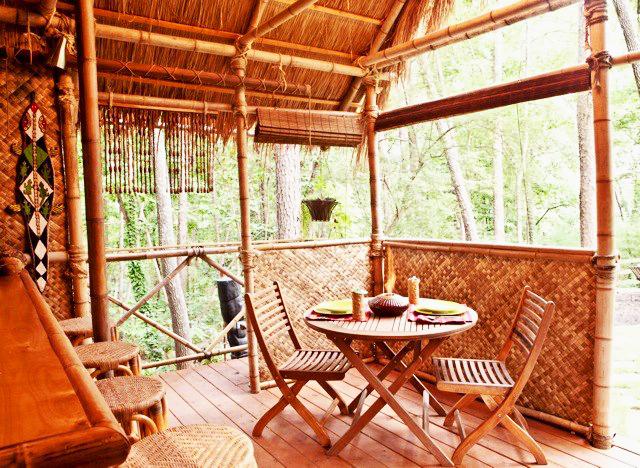Southern Bamboo, a Jackson, Miss., based company grows, harvests and distributes bamboo throughout the United States. The company conducts climate research on the southern U.S. as well as studies the logistics of bamboo farming on a large scale.
In one study, the company found areas in the southern U.S. are perfectly suited to produce large bamboo groves similar to those in China, the world’s current leading bamboo exporter.
The U.S. imports close to $1 billion worth of bamboo and bamboo-related products and produces close to none.
Sean Hemmings, CEO and founder of Southern Bamboo, said large corporations have spoken about this issue, books, blogs and academic papers have been written on this issue but no one has done anything about it.
“We set out to actually to do something about it, not just talk about it and actually, we’ve gotten to that,” Hemmings said, “We looked at lot of bamboos, we looked what was around how much of it how difficult it was to get and we started harvesting bamboos for the poles.”
Bamboo is highly sustainable and can be harvested four times per year. According to the Guinness Book of World Records, bamboo is the fastest-growing plant in the world. Some bamboo grow four feet in a day.
Steve Turner, head of the Department of Agriculture Economics at Mississippi State University, said the U.S. is the most efficient agricultural producer in the world and it competes with many other countries around the world in both the domestic and international markets. Turner also said every commodity market is different and the market for catfish is much different than the market for corn or soybeans or rice or bamboo.
“It is much more economical to grow a lot of bamboo (China) than a small amount (U.S.). There could also be restrictions (tariffs and quota) on selling bamboo to other countries,” Turner said.
Hemmings said importers who import from China have to wait months to get their bamboo poles, allowing Southern Bamboo to compete with China in bamboo production. China by and large uses the higher-grade bamboo for flooring, and the bamboo poles that come to the U.S. are sub-standard and there are commercial people who refuse to use them. He said there is always waste in every container that arrives from China as much as 30 percent in some cases.
“My product is in my backyard, I have become very refined and very efficient in how to go and harvest, I do not have shrinkage due to low quality and damage in shipping, and I don’t have to wait four months to get my product for it to be delivered, I can go and cut it tomorrow if I want,” Hemmings said.
Southern Bamboo united local bamboo growers, turning a few disparate bamboo groves into a large commercial business.
Noelle Roberge who works for Southern Bamboo said she and her husband have this amazing opportunity to not work 9 to 5 jobs. Roberge said she likes being able to have flexible schedules so that she could spend time with her husband and son.
“It also allows me to continue pursuing a degree at MSU and it gives my husband a chance to use his artistic and creative talents. Our boss has an inspiring outlook on life, work and the environment, and it feels good to know that we share the same system of values with the man we work for,” she said. “He has big dreams for Southern Bamboo and we believe in him and share the dream. My husband, Kyle, and I hope to be in the bamboo business for the long run.”
Hemmings said in the future with Southern Bamboo, he wants to plant bamboo as a contiguous commercial cash-crop.
“Bamboo should be here (U.S.) because it is directly against a trade-deficit with China and with other foreign countries. We have marginal land in the U.S,” Hemmings said.
For more information on Southern Bamboo, visit southernbamboo.us
Backyard crop provides commerciality
Donate to The Reflector
Your donation will support the student journalists of Mississippi State University. Your contribution will allow us to purchase equipment and cover our annual website hosting costs.




















































































